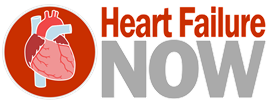Neurologist, discusses What Medications are Right for Stroke Patients.
What is Local Neurologist
If you have a cardiovascular condition or are recovering from heart surgery, you will work with a local cardiologist and a local family physician. Research shows that heart disease/heart failure can lead to neurological problems later in life, such as Alzheimer’s disease and dementia. A lack of oxygen during a heart attack or a stroke can also lead to brain damage. A local neurologist is a doctor who treats patients who have disorders that affect the brain. They also treat disorders of the spinal cord and its peripheral nerves and muscles. Your local family physician can refer you to a local neurologist if they feel that you would benefit from working with one. Your local neurologist can work with your other healthcare providers, including your local endocrinologist, physiotherapist, cardiologist, athletic therapist, pharmacist and local registered dietitian. If you have a heart condition such as COPD or have experienced heart failure and would like to learn more about working with a local neurologist, talk to your local family physician.
Canadian Neurological Sciences Federation The improved wellbeing of children and adults with diseases, disorders and injuries of the nervous system and the prevention of these conditions.
The ANA is the only professional society devoted to academic researchers and physician-scientists who work to achieve a world without neurological disease through careers that combine discovery, education, and clinical care.
A local neurologist is a medical doctor who is specially educated and trained in treating patients with disorders affecting the brain as well as the spinal cord, peripheral nerves and muscles. If your local family physician believes you need further testing and diagnosis of a condition such as stroke, severe headaches or migraines, sleep problems, multiple sclerosis epilepsy or dementia, they may refer you to a local neurologist. Depending on the diagnosis and treatment plan, your local neurologist may recommend surgery, medication, further screening or lifestyle changes.
A stroke is caused by a reduction or interruption of the blood supply to a part of the brain. The brain tissue is deprived of nutrients and oxygen, and brain cells start dying within minutes. A stroke may be caused by a blocked artery or the leaking or bursting of a blood vessel.
Types of Stroke
An ischemic stroke is more common and is caused by a blocked artery. Ischemic strokes are further divided into thrombotic strokes, which are caused by a blood clot that develops in the brain. Hemorrhagic strokes are caused by a blood clot or plaque debris that develops in another part of the body and travels to the brain via the bloodstream. Hemorrhagic strokes are further divided into intracerebral hemorrhage and subarachnoid hemorrhage. An intracerebral hemorrhage is caused by a blood vessel leaking or bursting. A subarachnoid hemorrhage is caused by bleeding in the space between the brain and membranes that cover the brain. If you experience a transient ischemic attack (TIA), also called a mini-stroke, you experience a temporary disruption of blood flow to the brain.
A neurologist is a medical doctor who has taken special training in the diagnosis and treatment of nervous system disorders that affect the brain, spinal cord and nerves. A neurologist may work in a clinical setting or offer advanced care in a hospital such as stroke assessment, acute hospital care, rehabilitation and outpatient visits.
Stroke Symptoms & Treatment
It’s important to watch for stroke symptoms, as a stroke is a medical emergency that can lead to brain damage or death. Stroke symptoms include:
• Difficulty walking
• Trouble speaking and understanding speech
• Slurring your words
• Vision problems
• Numbness or paralysis of the arm, face or leg
• Headache, often accompanied by vomiting or dizziness
If you suffer a stroke, a neurologist may order tests including a physical exam, blood tests, CT scan, MRI, angiogram and echocardiogram. Stroke treatment will depend on what type of stroke you’ve had. Subsequent to discharge from hospital or a rehabilitation facility, a neurologist is often involved to help with ongoing stroke prevention matters. Following your stay in the hospital, you’ll probably participate in a stroke rehabilitation program to help you recover movement, sensation, speech, language, balance and/or vision. The recovery from a stroke is often a prolonged process, over many weeks or months.
The Symptoms of Stroke and The Need For Immediate Treatment
A stroke is a sudden loss of brain function due to a problem with the blood supply to the brain tissue, and there are two types of stroke.
One is related to or caused by blockage of a blood vessel so that the brain tissue downstream from the blockage dies. And that affects about 80 percent of stroke patients. About 20 percent of the time, a stroke is due to a leakage of blood from the blood vessel into the surrounding tissue.
They can produce identical symptoms, depending on the part of the brain that affected, and its difficult for doctors to determine which type of stroke has caused the problem unless the patient has had a CAT scan or a CT scan.


